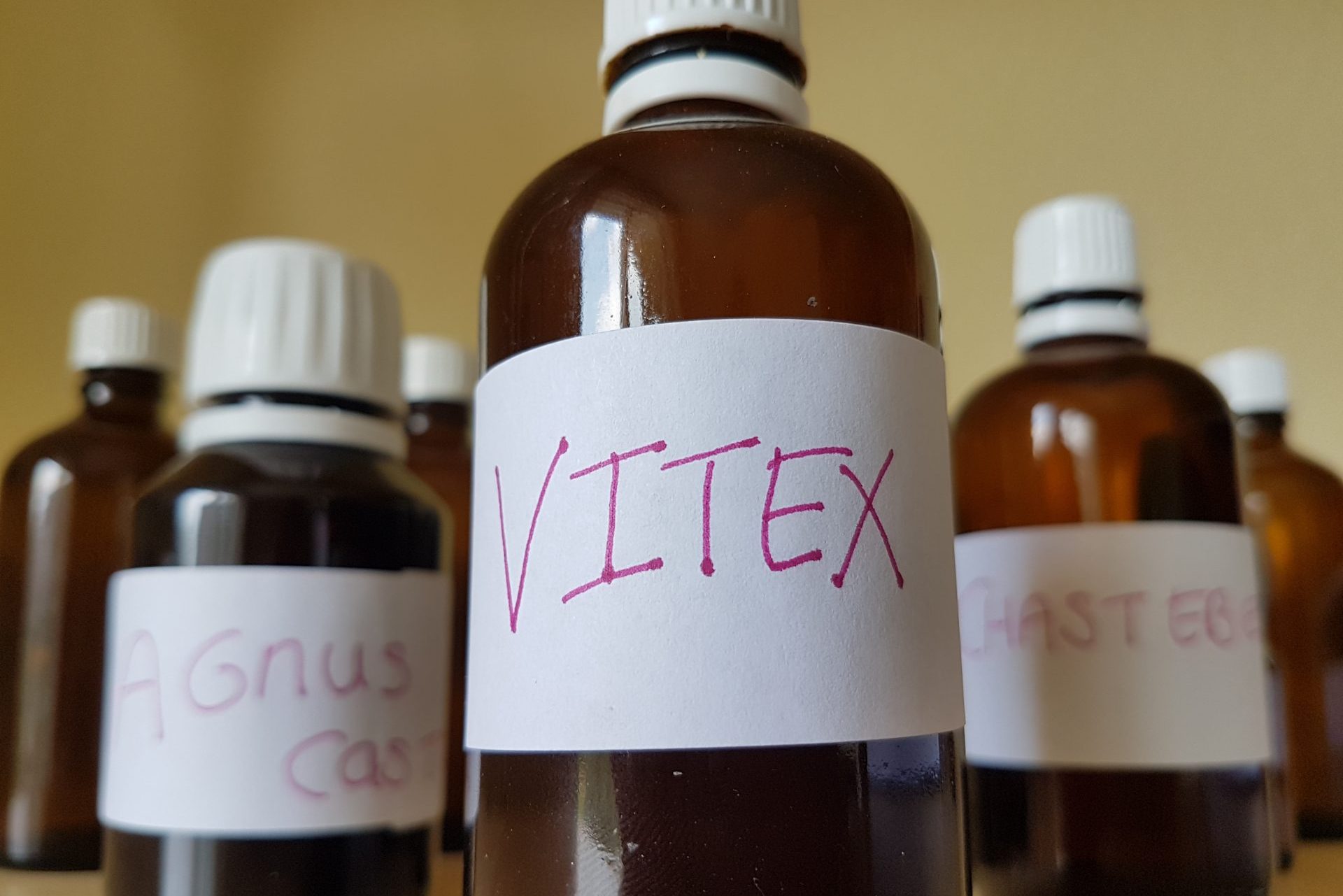Have you been looking into Vitex? Have you decided Vitex is for you and now want to give it a try but you’re not sure how? Then this is the guide you need to get started. At the end you will know how much to take, for how long, when to take it, and how to figure if it is working for you or not!
Before you try Vitex
Just to make sure, you’ve checked out my post on whether Vitex is in fact for you right? Many fertility forums will sing the praises of Vitex but it really isn’t for everyone. If you’ve got regular cycles it can even throw your hormone balance off! So if you haven’t read that post, go there now FIRST!
Ok, you’ve decided you’re a good candidate to try this magic herb. Great! In order to know if it is working for you though, you need a before and an after picture.
That means that you need to have at least (and preferably at least 2-3) charts of your cycle that you weren’t using Vitex. If you don’t have these charts yet, sign up to the free charting course, and collect a few months of charts (ok, you can get away with 1 chart) first.
What Vitex dosage you need
Time to start! When picking a product, it does not necessarily need to be called Vitex. Look out for its alternative names Agnus Castus and Chasteberry too.
With herbs, it is always best to use a tincture rather than capsules. Capsules contain the dried herb and that is much less effective.
-
Use a tincture rather than capsules
-
Take 60 drops a day
-
Pause when you have your period
-
Take for 3-6 months to see results
-
Work your way up to 90 drops a day if 60 is not doing enough after 3 months. Do not take more! You risk disrupting your hormonal balance rather than supporting it
-
If you break during your flow, you can continue to take it up to a year, then give yourself a 3-month break
Knowing if Vitex is working for you
Every month you are on Vitex, continue charting. That means not only recording when your period is, but also your cervical mucus, basal body temperature & ovulation tests.
Every month, answer the following questions:
- What day are you ovulating? Is this earlier as / the same time as/ later than before you were on Vitex?
- How many days does your luteal phase count (ovulation till period)? Is this longer than / just as long as / shorter than when you were not on it?
- Compare your temperatures between charts before and on Vitex. Are your temperatures lower / the same / higher?
- When you compare your before & after charts with these questions, you will know if it Vitex is working for you!
What if you fall pregnant?
Personally, I don’t advise to continue with Vitex once you fall pregnant. This is not because experts advise against it, but when you know how it works and how the pregnant body works, it does not make much sense.
Vitex, in the end, helps your Luteinising Hormone levels be higher. LH maintains the “corpus luteum” in the ovary that is left behind in the ovary after ovulation. The corpus luteum produces progesterone.
However… once you fall pregnant, it is NOT LH that keeps the corpus luteum alive and kicking to keep your progesterone up, but it is the pregnancy hormone HCG.
If you want to continue though, it is safe to take in pregnancy. Do however stop after 12 weeks and make sure to take it only under the guidance of a trained herbalist.
Since Vitex can stimulate early lactation, I prefer to prescribe homeopathic remedies to support the ovaries before 12 weeks to produce progesterone and the placenta after 12 weeks. These are absolutely safe and will not stimulate any other hormonal processes.
When Vitex does not work (anymore)
If you have tried Vitex and it does not work for you, don’t despair. Vitex can only address one issue and that is the dopamine issue. It also does not solve the root cause of your infertility or hormone imbalance. Homeopathy, however, CAN do that.
Some boring but necessary warnings:
- Do not take if you are under 18
- Do not take when on fertility drugs
- Do not take when on birth control
- Best not to take when suffering from PCOS. Opt for homeopathic treatment instead
- Stop taking if you have any reactions to it


